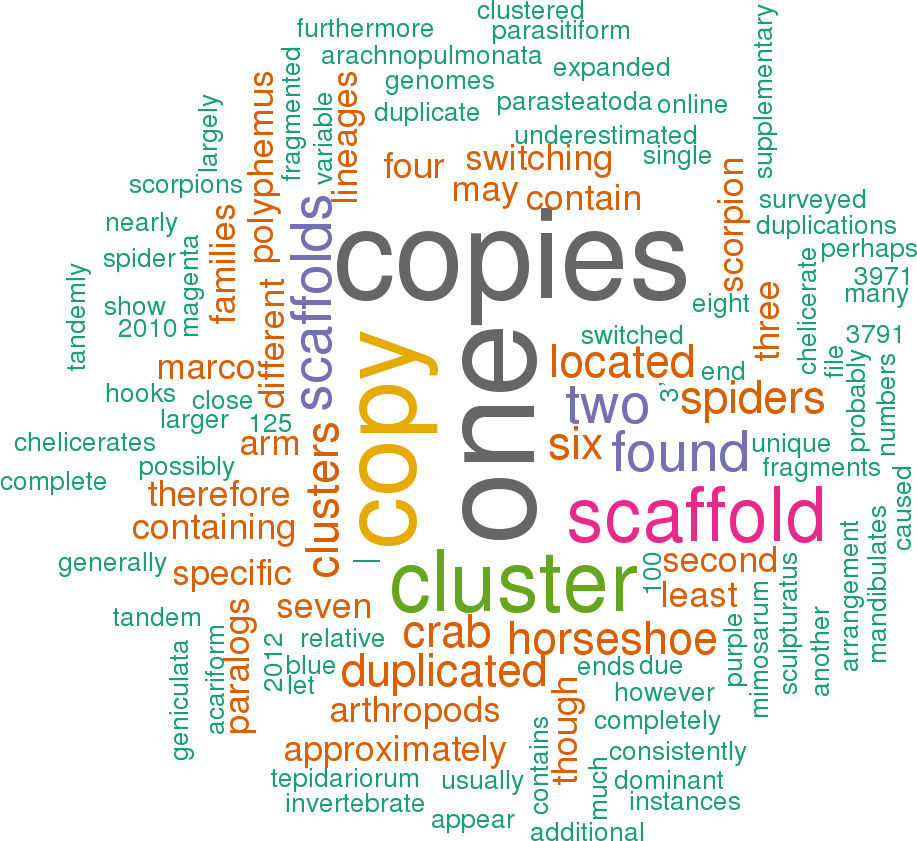2 papers mentioning pte-mir-2g-1
Open access articles that are associated with the species Parasteatoda tepidariorum
and mention the gene name mir-2g-1.
Click the buttons to view sentences that include the gene name, or the word cloud on the right for a summary.

 |
 |
